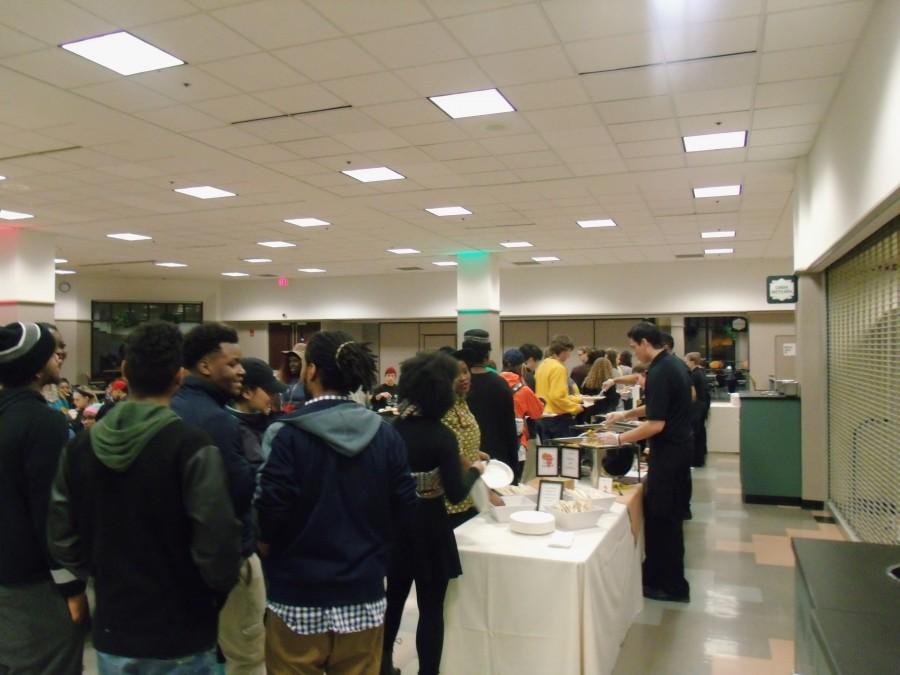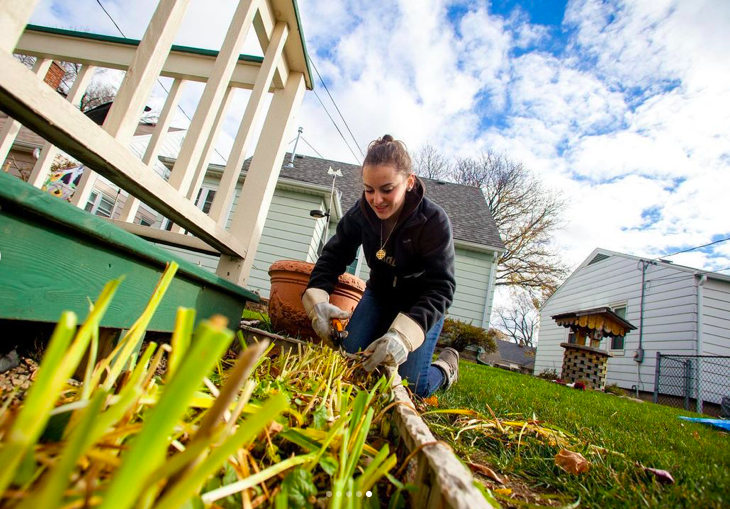Where’s the beef?
A better question might be, what happens to all the leftover beef?
America is considered a wasteful country. Roughly one third of America’s food supply is wasted each year, and up until recently, college campuses were a major contributor to that waste.
It’s no secret that campus dining halls have to over-prepare in order to accommodate the large number of students who use the service. Of course, it can then be assumed that there is often a lot of food left over that inevitably goes to waste.
Students at several universities decided this was unacceptable, and began to implement changes in their campus food services. Organizations like Campus Kitchens began popping up at campuses all over the country, including Marquette’s.
Campus Kitchens’ goal is to limit food waste and increase food sustainability on campus. Marquette’s chapter of Campus Kitchens provides nearly 500 meals to partners in the community using food donated by the dining halls on campus.
OK, great. What’s the problem?
The fact that this program exists is awesome, there’s no denying that. The issue lies in the apathy; a large percentage of the population does not think about where their leftover food goes and is disinterested in domestic poverty.
How many times have you been eating dinner with family or friends when somebody says they are too full to finish the meal, opening the window for somebody else to chime in “what about the starving kids in Africa?” It’s not so often that someone brings up the starving kids in Milwaukee.
I’m not at all saying Marquette students don’t care about Milwaukee’s hungry and homeless. Marquette actually offers a great deal of opportunities to serve the community, whether it be through Campus Kitchens, Hunger Task Force or another service program. I am saying that because we as a population are so uneducated on the severity of domestic poverty, it is hard to be a crusader against it. How can you have an opinion on something you know nothing about?
The solution is to push the issue to the forefront of discussion and attempt to educate the Marquette community. I’ve heard of Hunger Task Force, but am not entirely sure what goes into the program, or even what its specific goals are. The same goes for Campus Kitchens and all the other hunger-based programs that exist at Marquette; there just isn’t enough information being shared about their goals and initiatives.
Furthermore, even less is shared about why these groups exist. Obviously homelessness and hunger are serious global and national issues, but people are suffering right outside our apartments and residence halls. These groups exist at Marquette because there is a great need to combat the prevalent issues of homelessness and hunger in Marquette’s neighborhood.
If I advocate for anything, it is educating students about major social issues, and this issue is no exception. It really is great that Marquette puts such a large focus on giving back to the needy members of the community, but I think there is still work to be done on the education front. We need to tell people why to care, not just that they should.







